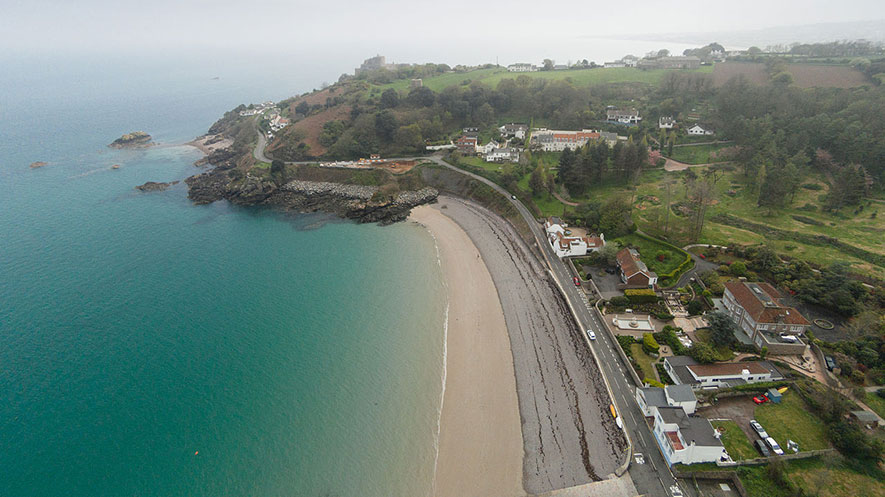A British report looking at the impact of climate change on Jersey's sea levels and coastline was published 3 August 2017.
The report, entitled Jersey Sea Level and Coastal Conditions Climate Review, was commissioned by the U.K. Environment and Infrastructure Departments and carried out by the National Oceanography Centre (NOC).
It assesses changes in Jersey's sea level and coastal conditions as a result of climate change, using a case study based on St Aubin's Bay. It's the first time that information about possible changes to Jersey's sea levels and coastline has been carried out using local information.
NOC recommend further work that should be carried out as part of efforts to prepare for the impact of climate change on Jersey's coast.
The report's main points include that:
- in line with global averages, the sea level around Jersey is currently increasing by 3mm per year
- future rates of increase are dependent on a range of parameters, including global carbon emissions. Based on a scenario in line with the targets agreed in the 2016 Paris Agreement, the likely increase in mean sea level by 2100 is 0.48m
- the frequency of extreme coastal events are likely to increase
- based on the St Aubin's Bay case study, in certain areas there will be a significant increase in sea water overtopping defences
- Jersey should continue to monitor sea level rise.
The report's authors make the following recommendations for further work.
- Modelling should be extended to assess the impact of greater volumes of water discharging over Jersey's sea defenses.
- Increased collaboration between departments and agencies – including the creation of a steering group to encourage cross-departmental working on climate resilience.
- A review of options and associated costs for improving coastal monitoring – exploring opportunities to expand Jersey's marine observational monitoring.
The U.K. Minister for the Environment Deputy, Steve Luce, said, “The Department for Infrastructure and the Environment Department jointly commissioned this report to ensure that Jersey has the most up to date and locally specific information on which to base ongoing work on adapting to climate change. The conclusions are in line with our expectations, which is reassuring to an extent, but clearly, this important work must continue.
“We've been working closely with colleagues from all the various agencies in Jersey for some time, but as the report proposes, we need to put that joint working on a more formal footing. We'll announce plans for this, and for the next steps for monitoring and modelling work to provide the relevant information for climate adaption across both the public and private sectors soon.”
The Department for Infrastructure Minister Deputy, Eddie Noel, said, “We have a robust programme of coastal defense maintenance which is ongoing but it is important for us to prepare for the future and this report provides us with a good basis for planning in association with our colleagues at the Environment Department.”
Professor Kevin Horsburgh from NOC said “Rising sea levels as a result of climate change represent a global threat. 23% of the world's population live within 100km of a coastline and within 100m of current sea level. The threat is particularly severe for low-lying island nations. The Intergovernmental Panel on Climate Change (IPCC) is unequivocal in its assessment of the gradual rise in mean sea level. Even with no change to Europe's storm climate, these increased sea levels will result in more instances of extreme events overtopping sea defences. The NOC is delighted to have worked with the States of Jersey to provide the most up-to-date information for the island and to help deliver a long-term plan for mitigation and adaptation.”
The States of Jersey already have a number of projects underway to help manage climate risks to Jersey. These include:
- a climate risk modelling project – being led by Department for Infrastructure over the next two years to develop a Shoreline Management Plan for the Island. The outcomes of this project will directly feed into multiple policy development areas such as the Island Plan review.
- Sea Defence Strategy 2016 – this is a maintenance and repair programme of Islands sea defences run by Department for Infrastructure.
- Future St Helier – being led by Department of the Environment to regenerate St Helier into an environmentally aware place to live and work. This includes climate resilience.
- Ports of Jersey Harbour Masterplan – working with Ports of Jersey to incorporate climate resilience.





